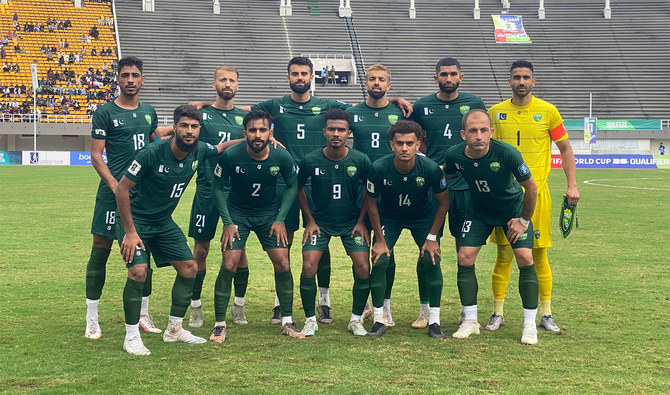Pakistan’s journey to the 2026 World Cup has been marked by challenges, but recent victories have ignited hope for change in the country’s football landscape. Traditionally overshadowed by cricket, Pakistan faced a lack of infrastructure, including no football league, FA, and sporadic international games. However, the team’s historic win against Cambodia in the first round of qualifiers marked a turning point.
Haroon Malik, head of the Normalisation Committee overseeing the Pakistan Football Federation, emphasized the significance of this achievement. With a dearth of games after their early exit from the 2018 World Cup qualifiers, reaching the second round against Saudi Arabia, Tajikistan, and Jordan is a monumental feat for the Pakistani team.
Malik acknowledged the need for corrections within the football system. FIFA’s intervention in 2019 deemed the 2018 PFF elections illegitimate, leading to the establishment of the Normalisation Committee. Despite challenges, Malik aims to conduct legitimate elections in 2024, steering Pakistani football toward stability.
The absence of a domestic league since 2018 and infighting within the federation added to Pakistan’s struggles. The appointment of new head coach Stephen Constantine just days before the crucial Cambodia tie presented additional obstacles. However, with Constantine’s expertise and the team’s year-round activity, there’s optimism for a positive trajectory.
Torben Witajewski, Pakistan’s assistant coach, highlighted the disadvantage of a dormant domestic league. Limited match opportunities and training-focused regimes hinder players’ experience and competitiveness. The appointment of Constantine, despite time constraints, injected a new dynamic into the team.
As the team advances to face tougher opponents, including Saudi Arabia, Tajikistan, and Jordan, players recognize the importance of consistent fixtures for progress. Navid Rahman, a midfielder, stressed that entering the group stage is a game-changer, providing crucial game time and momentum for the team.
However, the challenges persist, with federation troubles affecting the national team. The Normalisation Committee faces the complex task of revitalizing the national league, a key step in developing a competitive football environment. Malik admitted that a committee’s short-term focus can make long-term planning challenging.
Despite the hurdles, there is hope for the future. Football holds a special place in Pakistan’s sports culture, with a massive population and historical ties to the game. Witajewski dispelled the misconception that football lacks popularity, emphasizing the genuine interest among the Pakistani people.
Addressing structural issues, revitalizing the domestic league, and ensuring a stable football administration are crucial for the sport’s growth in Pakistan. The recent successes offer a glimmer of hope, but sustained efforts and reforms are essential to place Pakistani football on a more robust and sustainable path.




